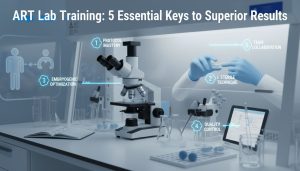Ovulation Stimulating drugs are fertility drugs that induce egg formation by stimulating the ovaries. Today, most fertility treatments include ovulation stimulating drugs as part of the treatment procedure.
While in some cases these drugs are inevitable and are necessary, experts are questioning the prescription of these drugs as a mandatory precedent to fertility treatments.
Infertility is on the rise. Today, a large percentage of couples of childbearing age find it difficult to conceive naturally.
They fail to conceive even after a year of having carefully timed, unprotected intercourse. This compels them to visit a fertility expert or a gynecologist.
The reasons for infertility vary from mild to severe. At most times changing lifestyle habits such as diet and exercise can improve conditions.
At other times, it could be a result of a medical condition such as tubal blockage, ovulatory problems or male infertility.
What are the common fertility drugs for women?
Fertility drugs such as Ovulation stimulating drugs work by stimulating the follicles and hence promote egg growth. Some of the common drugs are- Clomiphene or Clomid tablets (and its alternatives such as Tamoxifen and Letrozole tablets).
These medicines are commonly prescribed during fertility treatments.
Do Ovulation Stimulating drugs have side effects?
Experts have pointed out some complications that may arise due to the use of fertility drugs.
The flashing success rates tempt women to use fertility drugs without ever considering the long term effects of these drugs on their bodies.
The high level of estrogen hormone, that induces ovulation, increases the risk of blood clots, after fertility therapy. It also increases the chances of complications like pre-term delivery and pre-eclampsia.
The long term use of ovulation stimulating drugs has been associated with breast cancer risk. Although more studies need to be conducted before the strong conclusion.
What effect do these treatment procedures have on the cost of treatment?
The use of fertility drugs during IUI incurs additional expense and the need to monitor the development of multiple eggs makes the treatment costlier.
Is it important to induce Ovulation Stimulating drugs during fertility treatments?
The role of ovulation stimulation in increasing pregnancy rates, when the female is ovulating normally, has not been ascertained.
The ovarian stimulation in anovulatory females is mandatory as no procedure will lead to fertilization unless a healthy egg is released from the ovary.
Therefore, stimulation has a higher pregnancy rate in anovulatory women as compared to women who are ovulating normally.
The studies have found that the use of several ovulatory drugs- clomifene citrate, letrozole, human menopausal gonadotropin (HMG), in normal ovulating females, do not improve any significant pregnancy rates.
Conclusion–
Experts suggest that fertility treatment should be more personalized for each couple where fertility drugs should be given keeping in mind their long term effects on their health.
The possible consequences of the effect of drugs should be informed to the patients. Counseling sessions with both partners are the need of the hour.
Natural IUI methods should be given a go before introducing more invasive methods of treatment.
Awareness is the key to making an informed choice. Patients can empower themselves with knowledge on alternate methods of treatments such as natural or Home IUI.
Such treatments are less costly, less invasive and have little or no side effects.






